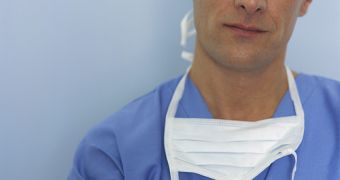The duration of a surgery and the amount of blood loss are increasing surgeons' stress level, while night shifts are linked to reduced stress arousal scores, a small study on Japanese surgeons suggests.
The study was carried out by Koji Yamaguchi, MD, PhD, and colleagues at University of Occupational and Environmental Health, Kitakyushu, Japan, and they evaluated 66 surgeons in 15 community and public hospitals, as well as in one university hospital.
Study participants filled in questionnaires assessing stress and workload both before and after day shifts, operations and night duty shifts.
They also provided urine samples which were tested for levels of biopyrin – a compound that shows the body is under stress.
The analysis of the questionnaires revealed that the surgeons were stressed after surgery, and the level of stress depended on the duration of the surgery and the amount of surgical blood loss.
The authors say that “there were no significant associations between surgical stress and number of operations per day, number of operations as a surgeon, number of operations as an assistant or laparoscopic or conventional surgery.”
The average duration of a surgery was 210 minutes and interestingly enough, according to urine analysis, biopyrin levels were far higher after a surgery lasting longer than 210 minutes, that after one that took under 209 minutes to perform.
And as the amount of blood loss was an important stress factor too, the biopyrin levels were found to be higher after a surgery in which there were lost 200 grams of blood or more.
As for surgeons who had a night shift, they got less sleep than the others and in the morning they experienced more stress – according to biopyrin levels.
Their stress arousal scores were also lower when they finished day shift after night duty, than they were when they finished a day shift not preceded by night duty.
Until now, the effect of surgical stress on patients has been largely studied, but this is actually the first time that the stress of surgeons due to surgery and night duty is evaluated.
The major problem today is that there are fewer and fewer young physicians that are likely to choose surgery as their specialty, with 80% less in 2000 compared with the 1980s.
The study authors write that “one of the reasons is the unfavorable working conditions experienced by surgeons, which has led to a decrease in the number of surgeons and, in turn, has caused even greater increases in the surgeons' workload and risk of errors.
“The problem of chronic sleep deprivation and overwork of surgical residents has become an important issue in the world, including Japan.
“A combination of poor-quality daytime sleep and increased sleep pressure during the night may result in lowered levels of alertness and an increased risk of errors in people on night duty, such as medical personnel.
“The present study demonstrated the stress of night duty on surgeons subjectively and objectively.
“Surgeons' working conditions, including night duty, should be improved to enhance the quality of life for surgeons, resulting in fewer errors in operations and medical treatments and better medical services for patients.”
This report will be published in the March print issue of Archives of Surgery, one of the JAMA/Archives journals.

 14 DAY TRIAL //
14 DAY TRIAL //